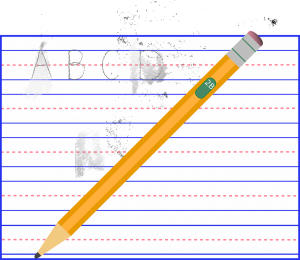It’s an age old problem. It’s something that teachers and parents talk about until they are blue in the face. It’s the one thing that can make the difference between adequate and excellent. It’s proofreading.
All too often, I read papers that are well organized, full of descriptive language, and clearly focused, yet they are riddled with spelling and punctuation errors. Many students do not realize that a simple once over in the proofreading department can improve their work a full letter grade!
One thing we can all do as educators and parents is to stop enabling this bad habit in our students. In my house, we have a strict policy: if my son brings me a paper to read, I hand it back as soon as the second proofreading error is found. I am happy to take a look for style and content, but proofreading is not my job. It’s his.
Create a Checklist

It can be helpful to sit with your student and create a proofreading checklist. Include the following things on the list: commas, incomplete sentences, spelling, missing words, and anything else where your student demonstrates a weakness. With beginning proofreaders, it may be helpful to read the work several time, once with each item on the checklist specifically in mind. Over time, proofreading will become a fluid endeavor completed in just one or two readings.
Avoid Computerized Checks
Secondly, even though spell/ grammar check is available on computers and processing programs, we should discourage our students from using them in place of their own proofreading. We don’t want our children dependent on spell check for proficiency any more than we want them dependent on calculators for addition. The skills need to be learned if we want to have successful writers.
So avoid the urge to proofread for your children. Hand it back after the second error. Teach them to use a dictionary. Let them proofread with you first and move toward independence. But remember: it is their job not yours!
